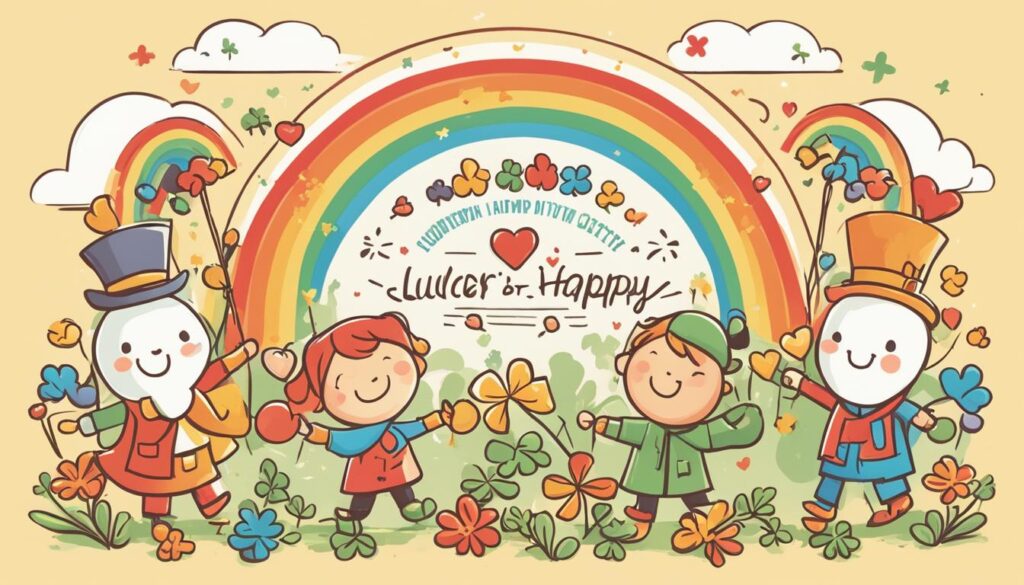 Wish You All the Best'" width="1344" height="768" />
Wish You All the Best'" width="1344" height="768" /> Wish You All the Best'" width="1344" height="768" />
Wish You All the Best'" width="1344" height="768" />
If you’re looking for alternative phrases to say “wish you all the best,” you’ve come to the right place. In this article, we have compiled a list of useful synonyms for this phrase that can be used in both formal and informal settings. Whether you want to send a kind message to a friend or express warm regards in a professional manner, you’re sure to find what you need below.
Table of Contents
As I navigate the vast ocean of professional communication, my heart finds solace in the eloquent phrase of “best wishes.” This exquisite combination of words exudes grace and sophistication, making it the epitome of a formal synonym for “wish you all the best.”
When crafting emails for school or work, I often seek a sign-off that strikes the perfect balance between friendliness and formality. It is in these moments that “best wishes” reigns supreme, effortlessly capturing the essence of well-wishing in a professional context. Its simplicity and brevity bring a touch of elegance, allowing me to vary my phrasing while maintaining a refined tone.
“Best wishes” – an enchanting spell woven with sincerity and goodwill, gracefully punctuating the conclusion of my correspondence.
“Best wishes to you and your team as you embark on this new project. I have every confidence in your abilities and look forward to celebrating your success.”
In the dance of words, “best wishes” glides across the stage, impeccable in its execution, and leaving a lasting impression. It is a professional sign-off that encapsulates both warmth and professionalism, ensuring my email correspondence resonates with genuine care.
Let us now embark on a visual journey, the tableau of a beautiful table that highlights the poise and dignity of “best wishes.”
| Formal Synonyms for “Best Wishes” | Feeling |
|---|---|
| Sincerely | A sincere expression of goodwill |
| Kind regards | A gesture of kindness and respect |
| Best regards | A sincere wish for the recipient’s well-being |
| Respectfully | A sign-off with deference and courtesy |
Behold, the majestic dance of words within the confines of this refined table. Each synonym for “best wishes” showcases a unique sentiment, ensuring that every email concludes with an air of professionalism and finesse.
Explore a myriad of sincere sentiments beyond the conventional phrases—immerse yourself in them at Expressions of Care.

As I bid you farewell in this section, allow me to extend my best wishes to you, dear reader. May your professional endeavors be adorned with success and may the elegance of “best wishes” guide your words towards triumph.
Rooting for you is a wonderful casual alternative to say wish you all the best. It’s a phrase that exudes enthusiasm and shows genuine support for friends or family. While not appropriate for formal emails, this informal synonym adds a playful and encouraging touch to your well wishes. So, if you’re looking to uplift and motivate someone close to you, rooting for you is the perfect choice. Let’s take a look at some examples of how to use this phrase effectively in informal messages:
“Hey Sarah, just wanted to let you know that I’m rooting for you in your upcoming job interview! You’ve got this, and I know you’ll do amazing. Go show them what you’re made of! Take care and keep me posted on how it goes. Cheers!”
“Hey Mike, I heard about your new business venture, and I wanted to reach out and say that I’m rooting for you every step of the way. Your passion and dedication are inspiring, and I can’t wait to see your dreams turn into reality. Wishing you all the success in the world!”
| Pros of Using “Rooting for You” | Cons of Using “Rooting for You” |
|---|---|
| 1. Expresses genuine support and encouragement | 1. Not suitable for formal email correspondence |
| 2. Adds a playful and enthusiastic touch | 2. May be perceived as too casual in certain situations |
| 3. Helps build a closer bond with the recipient | 3. Not appropriate for professional settings |
As you can see, using the phrase rooting for you in informal messages brings positivity and shows your unwavering support. Just remember to use it in the right context and with the right audience to ensure your message resonates effectively.
The phrase “wish you all the best” is a grammatically correct expression that can be used in both formal and informal contexts. It is widely accepted and commonly used in work and school emails, as well as in friendly and festive messages to friends and family. This versatile phrase conveys a genuine sense of goodwill and well wishes for the recipient’s future.
It is important to note that the phrase “wishing you all the best” is also grammatically correct and can be used interchangeably with “wish you all the best.” The addition of the word “wishing” before the pronoun emphasizes the act of expressing good wishes or hopes for someone’s future endeavors. This variation adds a touch of courtesy and sincerity to the phrase.
When using these expressions, it is essential to consider the context and the relationship between the sender and the recipient. Whether it is a formal or informal setting, the expression “wish you all the best” is a appropriate and thoughtful way to convey your positive intentions and heartfelt wishes.
When it comes to signing off an email with a friendly and informal touch, there are plenty of alternative phrases you can use instead of “best wishes.” These alternatives add a personal and casual tone to your closings, creating a warm and relaxed atmosphere. Whether you’re reaching out to a friend, a colleague, or a family member, consider using one of these friendly alternatives:
By using these alternative phrases, you can create a friendly and engaging email closing that sets a positive tone and fosters a deeper connection with the recipient. Here are some examples of how you can incorporate these alternatives into your emails:
Hi Sarah,
I just wanted to reach out and see how you’re doing. All the best with your new project! Can’t wait to catch up soon over a cup of coffee. Take care!
Warm regards,
Emily
Hey Mark,
Thanks for your quick response. Cheers to our successful collaboration! Let’s touch base again next week to discuss the details. Talk soon!
Take care,
Emma
These examples demonstrate how these alternative phrases can be seamlessly integrated into your emails, adding a touch of friendliness and informality while maintaining a professional and respectful tone. Play around with different alternatives and find the ones that resonate best with your personal style and the nature of your email.

Searching for a suitable replacement for “best wishes” in a formal and professional context? Look no further. I have curated a selection of alternative phrases that will add a touch of sophistication and professionalism to your email sign-offs. Whether you’re communicating with colleagues, clients, or superiors, these formal alternatives will leave a lasting impression.
“Sincerely” – A classic and timeless choice, “sincerely” is widely recognized as a polite and respectful way to conclude an email. It conveys an air of professionalism and indicates that you value the recipient’s time and attention.
“Kind regards” – This phrase strikes a balance between formality and warmth. It expresses politeness while maintaining a professional tone. Perfect for closing business emails or formal correspondence.
“Best regards” – Another commonly used alternative, “best regards” projects a sense of goodwill and esteem. It is a safe choice for various professional situations, conveying a sincere and respectful tone.
“Respectfully” – If you want to show deference or convey a higher level of respect, “respectfully” is an ideal option. This sign-off emphasizes your regard for the recipient and signifies a level of professionalism.
Using these formal alternatives will elevate the tone of your emails and leave a lasting impression. Take a look at the examples below to see how these phrases can be seamlessly incorporated into professional emails:
Dear Mr. Johnson,
Thank you for considering my proposal. I have attached the detailed report for your review. Please let me know if you have any questions.
Sincerely,
John Smith
Hi Emily,
I hope this email finds you well. I wanted to discuss the upcoming project and address any concerns you may have. Please feel free to reach out to me at your convenience.
Kind regards,
John Smith
Dear Ms. Williams,
Thank you for your prompt response. I appreciate your assistance in resolving this matter. Should you require any further information, please do not hesitate to contact me.
Best regards,
John Smith
Dear Dr. Anderson,
I want to express my gratitude for your valuable insights during our meeting. Your expertise has been invaluable, and I look forward to continuing our collaboration.
Respectfully,
John Smith

By incorporating these formal alternatives into your email sign-offs, you can convey professionalism, respect, and goodwill to your recipients. Remember, the right choice of words can make a lasting impression and set the tone for effective communication. Choose wisely and make your emails stand out!
When it comes to expressing heartfelt sentiments, there are affectionate alternatives that can beautifully convey your warm wishes. These alternatives go beyond the traditional “best wishes” and add a personal touch to your email closings.
1. Warmest Regards: This phrase exudes genuine warmth and affection, making it perfect for expressing deep affection and well wishes towards the recipient.
2. With Love: Infused with love and care, this closing is ideal for close friends, family members, or someone you have a special bond with. It conveys your sincere affection and good intentions.
3. Love: A simple and endearing way to sign off, “love” is perfect for close relationships and conveys a deep sense of caring and fondness.
4. Yours: This sign-off is a poetic and romantic way to express your bond with the recipient. It denotes a deep connection and heartfelt emotions.
These affectionate alternatives can be used in a variety of contexts, from personal emails to close friends and family to intimate business relationships where a genuine connection has been established.
“Warmest regards” and “with love” are two perfect examples of how you can infuse your email closings with genuine affection and warmth. These heartfelt sign-offs create a lasting impression and show the recipient how much they mean to you.”
By choosing these affectionate alternatives, you can leave a lasting impression and show your genuine care for the recipient. Let your words be a reflection of your emotions and create a meaningful connection through your email closings.

When it comes to congratulating someone, the usual “best wishes” might not always capture the full extent of joy and praise you want to express. Luckily, there are various alternative phrases that can convey your excitement and celebrate someone’s achievements in a more vibrant manner. Here are some celebratory email closings to consider:
“In the realm of celebratory email closings,
These words excel in expressing our joy.
With ‘kudos’ and ‘bravo’ we celebrate and toast,
While ‘congrats,’ ‘well done,’ and ‘way to go’
Bring praise and happiness to those we cherish.”
So, next time you want to share your congratulations and spread joy, consider using these alternative phrases. Let your words dance with excitement and express the immense pride you feel. By choosing the right celebratory email closing, you can create a moment of celebration that will be cherished by the recipient.
| Alternative Phrase | Meaning | Usage |
|---|---|---|
| Kudos | Applause and admiration | Formal and informal settings |
| Bravo | Acknowledgment of achievement | Formal and informal settings |
| Congrats | Informal congratulations | Casual and friendly messages |
| Well done | Acknowledgment and praise | Formal and informal settings |
| Way to go | Encouragement and praise | Informal and enthusiastic messages |
“Best wishes” is not just a simple sign-off phrase for emails; it carries a profound meaning. When I send my best wishes, I convey goodwill and hope for the recipient’s future endeavors. It is a way for me to express my sincere desire for their happiness and success.
This versatile phrase can be used in various contexts, from casual conversations to formal settings. Whether it’s a birthday, graduation, or a new job, “best wishes” can serve as a beacon of positivity and encouragement.
However, it’s important to note that using “best wishes” on its own can sometimes come across as generic and cold. To make it more personal and heartfelt, I accompany it with a short message or specific details related to the occasion.
“May your journey in life be filled with endless joy and adventures. Best wishes on your new chapter!”
By adding a touch of individuality and warmth to my best wishes, I let the recipient know that they are not just another name on my contact list, but someone I genuinely care about.
When we say “best wishes,” we are encapsulating a range of emotions and intentions:
“Best wishes” is an expression of positivity and genuine care. It’s a way for us to extend our support, encouragement, and love to those around us.
To add a touch of variety and personalization to your email closings, there are several synonyms you can use instead of the standard “best wishes.” These alternative expressions provide a diverse range of tones and cater to different situations. Whether you are seeking a friendly and informal sign-off or a more professional and polished closing, there is a synonym that will suit your needs.
“All the best” is a warm and casual alternative to “best wishes.” It conveys a sense of well-wishing and positivity, making it perfect for friendly and informal emails. For example:
“Cheers” is another informal synonym that can be used to express good wishes. It has a slightly more celebratory and enthusiastic tone, making it ideal for informal occasions or when expressing excitement. For example:
When it comes to professional email closings, “sincerely” and “kind regards” are excellent alternatives to “best wishes.” These phrases maintain a level of formality while still conveying goodwill and professionalism. For example:
If you want to add a touch of affection and warmth to your email closings, consider using alternatives like “warmest regards” or “with love.” These expressions are perfect for conveying genuine affection and heartfelt well wishes to friends, family, or close acquaintances. For example:
By incorporating these synonyms into your email closings, you can add a personal touch and effectively convey your best wishes, whether you’re aiming for a friendly, professional, or affectionate tone.
When it comes to expressing well wishes professionally, it’s crucial to strike the right tone. Here are some polished and professional alternatives to “best wishes” that you can use to close your emails with finesse:
When using these alternatives, it’s important to combine them with additional sentences to add context and personalization. Here are some examples of professional email closings:
Thank you for considering my proposal. Sincerely, John.
Looking forward to hearing from you soon. Best regards, Mary.
If you have any further questions, feel free to contact me. Kind regards, Robert.
Yours faithfully, [Your Name]
By using these professional alternatives and customizing them to fit the context of your email, you can ensure your well wishes are conveyed with the utmost professionalism and polish.
| Alternative Phrases | Meaning and Usage |
|---|---|
| Sincerely | A formal sign-off showing respect and sincerity. |
| Best regards | Combines warmth and professionalism effectively. |
| Kind regards | Courteous and thoughtful, maintaining a professional tone. |
| Yours faithfully | A formal and respectful closing, commonly used in business settings. |
As we conclude, it’s clear that there are numerous alternative phrases at our disposal when it comes to expressing best wishes in our emails. We have explored a variety of options, from friendly and informal alternatives to professional and affectionate expressions. With these choices, we can add personalization and diversity to our email closings.
It is crucial to select the appropriate phrase based on the context and desired tone of your email. Whether you are conveying well wishes, offering congratulations, or expressing warm regards, using these alternative phrases will ensure your message feels authentic and genuine.
In summary, by exploring these alternative phrases and incorporating them into our email endings, we can effectively convey our sentiments and end our emails on a positive note. So, the next time you find yourself reaching for “best wishes,” remember the plethora of options available. Now go forth and end your emails with style and flair!
Some alternative phrases include “best wishes,” “rooting for you,” “warmest regards,” and “with love.” These can be used to convey well wishes in different contexts.
Yes, there are formal alternatives such as “sincerely,” “kind regards,” “best regards,” and “respectfully” that can be used in professional sign-offs.
“Rooting for you” is a great informal alternative. Other options include “all the best,” “cheers,” “talk soon,” and “take care.”
Yes, “wish you all the best” is grammatically correct. It can be used in various formal and informal circumstances.
Yes, “best wishes” can be used to convey congratulations. Alternatives include “kudos,” “bravo,” “congrats,” “well done,” and “way to go.”
“Best wishes” conveys goodwill and hope for the recipient’s future. It can also be used to express hope during special occasions.
Synonyms for “best wishes” include “all the best,” “cheers,” “sincerely,” “kind regards,” “warmest regards,” and “with love.”
To maintain a professional tone, alternatives such as “sincerely” and “best regards” can be used. It’s also recommended to add additional sentences for context and personalization.
Friendly and informal alternatives include “all the best,” “cheers,” “talk soon,” and “take care.” For a more formal tone, alternatives include “sincerely” and “kind regards.” Affectionate options include “warmest regards” and “with love.”
Welcome to the author page of Henry, a literary virtuoso with an unparalleled command over synonyms, expressions, and the art of novel writing. Henry’s journey in the realm of words has been a fascinating odyssey marked by creativity, linguistic prowess, and a deep passion for storytelling.